
AI4D | Francophone AI: Qu’est-ce que c’est?
Ce webinar en français focalisera sur l'IA Francophone.

Ce webinar en français focalisera sur l'IA Francophone.

Francophone AI: Qu’est-ce que c’est?
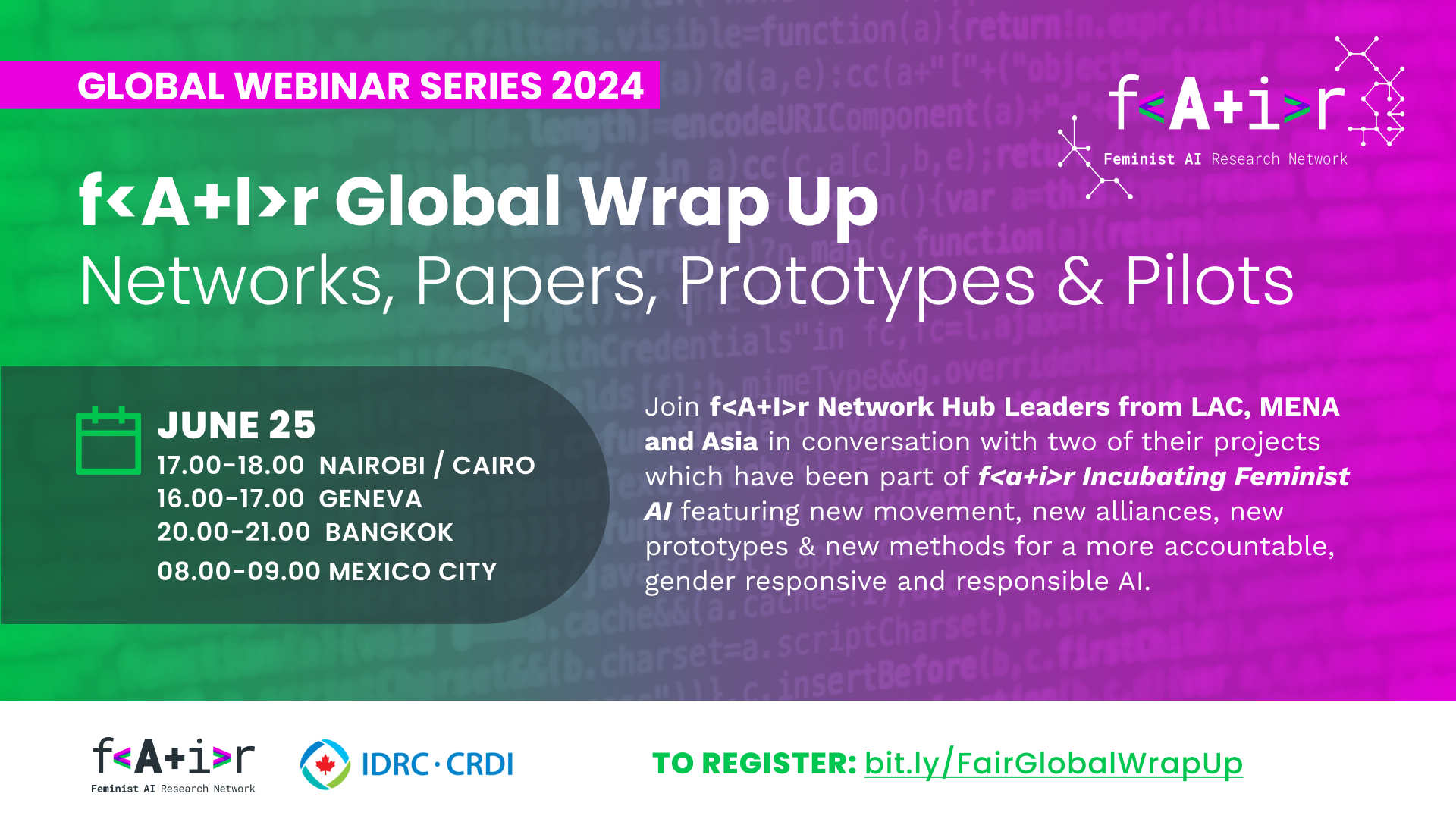
In this webinar, we will be wrapping up the F<A+I>R Feminist AI Research Network of projects with the various members of our cohorts sharing on the journey of bringing their research to life.
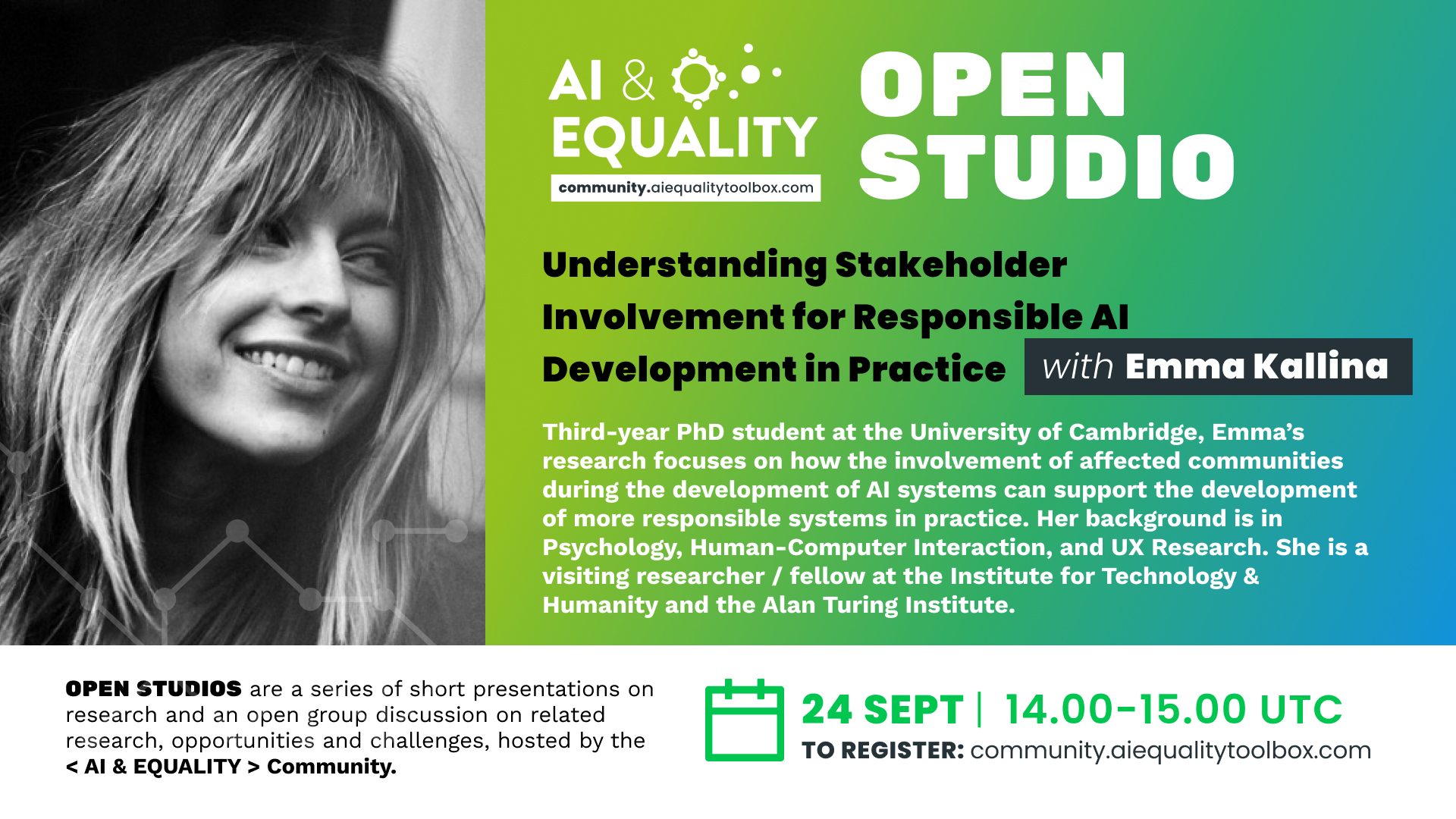
How can we better involve affected communities in the development process of AI systems - and what are blockers to this in practice? In this Open-Studio Session, Emma will provide an overview over her PhD research, including (1) why we have to involve affected communities during the development of AI systems, (2) the differences between such stakeholder involvement for responsible AI efforts vs the type of stakeholder involvement currently happening in practice, (3) the steps required for stakeholder involvement ensuring more responsible systems, as well as (4) contexts with potential exceptions to such rules.
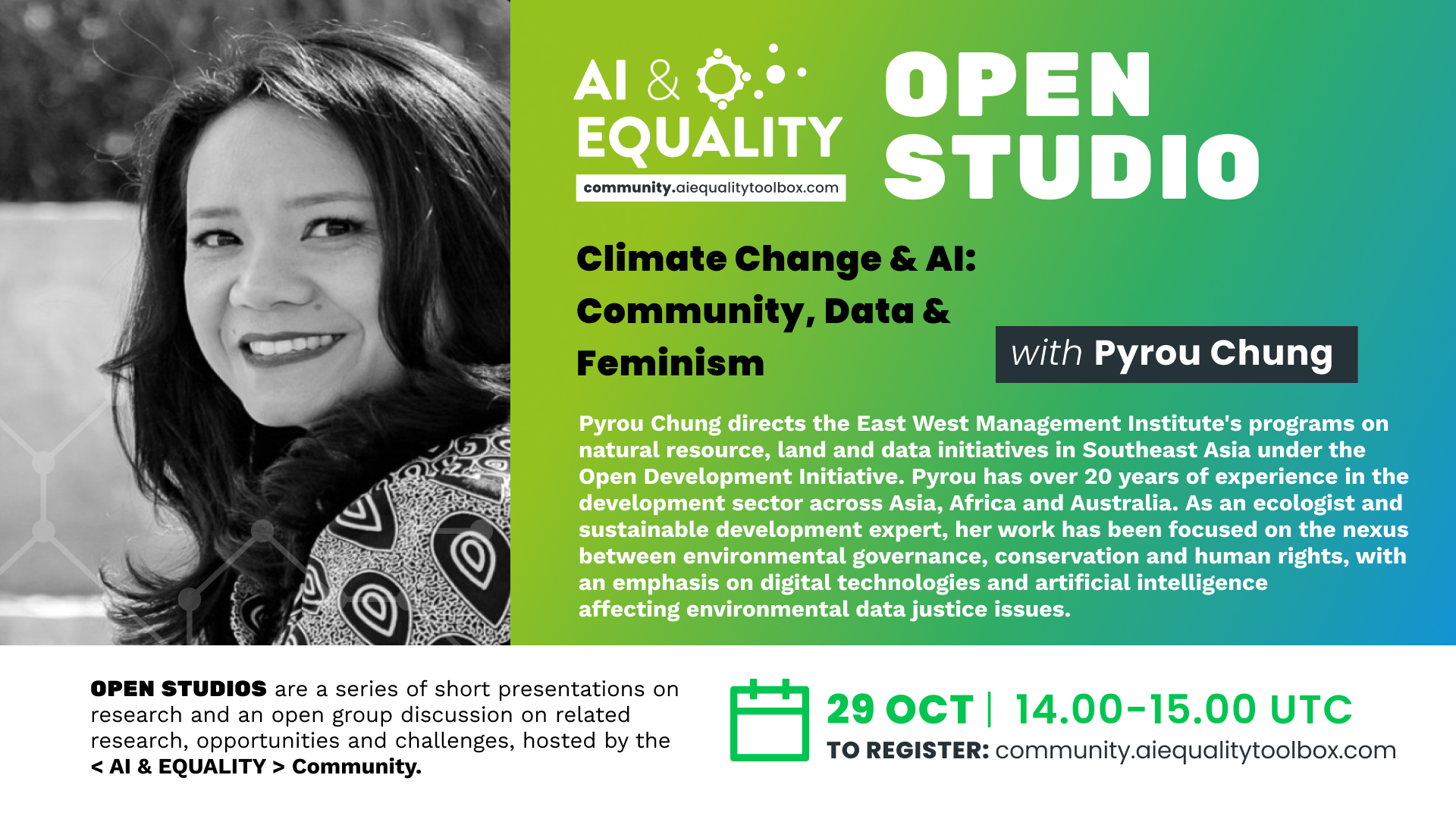
Based in Thailand, Pyrou Chung directs the East West Management Institute Programs on natural resources, land, and data initiatives in Southeast Asia under the Open Development Initiative. As an ecologist and sustainable development expert, her work has been focused on the nexus between environmental governance, conservation and human rights, with an emphasis on digital technologies and artificial intelligence affecting environmental data justice issues.

In this open studio, Daniela Moyano will speak about Sof+IA: a prototype chatbot designed to report and provide guidance on Digital Gender Violence (DGV) in Chile. This evaluation examines its development through Data Feminism principles, highlighting how it challenges power structures, prioritizes survivor needs, and integrates emotion into technology design.
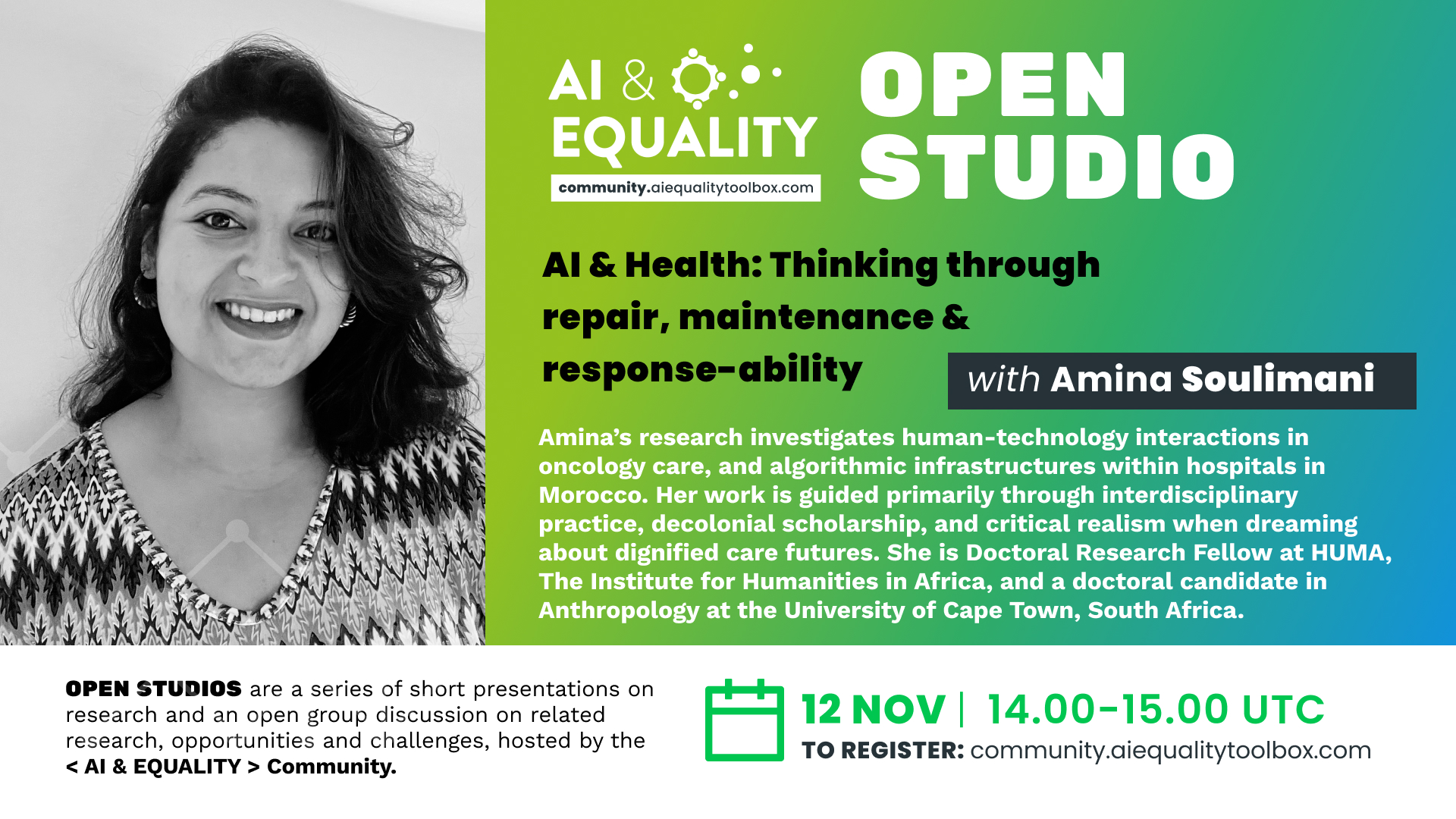
This open studio will focus on exploring the multiple ways through which we can understand the entanglement of repair and maintenance with visionary aspirations around smart hospitals. By revisiting earlier and contemporary Feminist STS texts, new materialism, phenomenology and leaning on insights from the field, Amina will share insights emerging from her ongoing PhD research. Presenting Morocco as a case study, this talk shall explore further the dimensions that waiting takes in environments that run through foreign software in local hospitals.
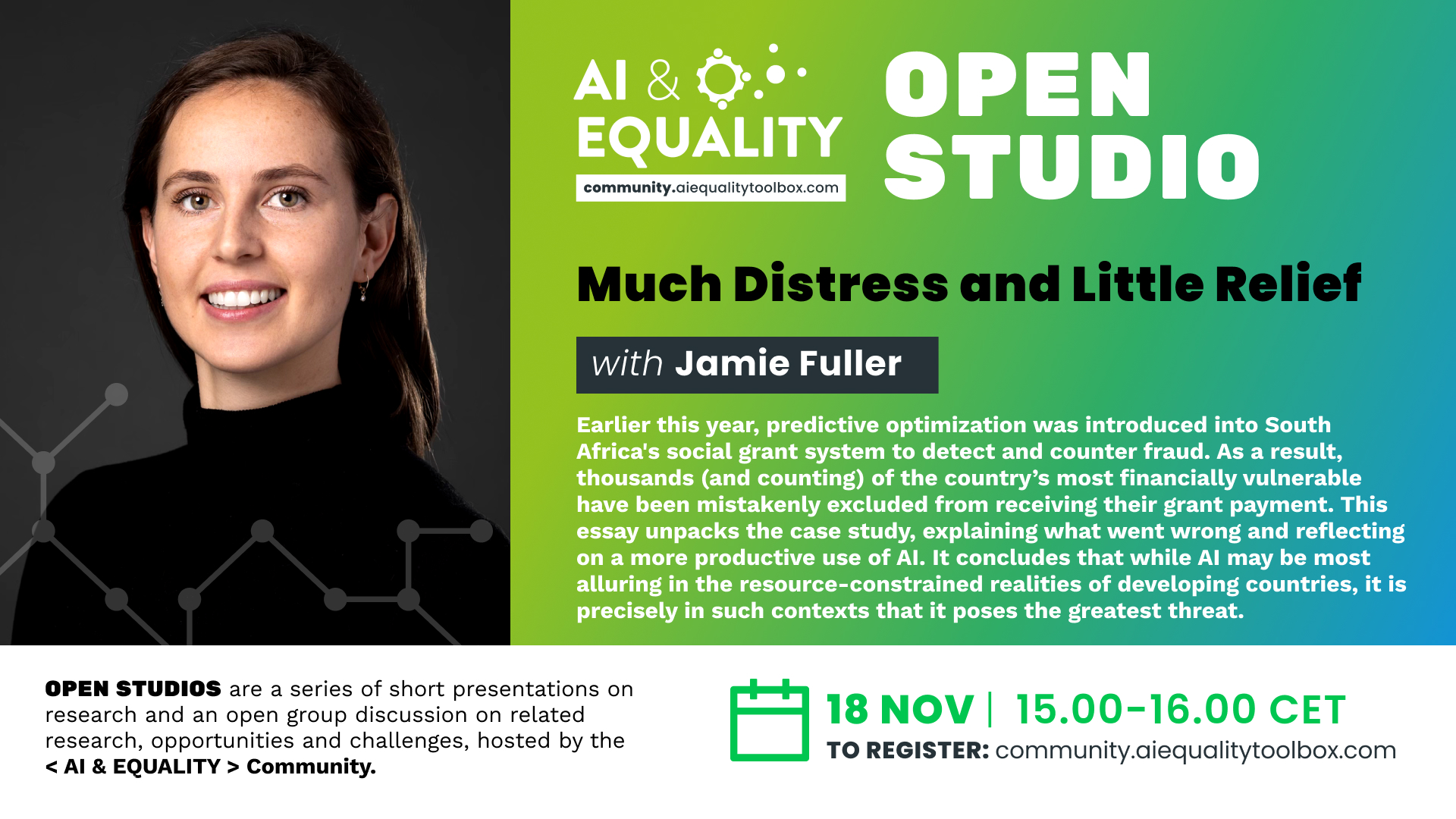
Earlier this year, predictive optimization was introduced into South Africa's social grant system to detect and counter fraud. As a result, thousands (and counting) of the country’s most financially vulnerable have been mistakenly excluded from receiving their grant payment. This open studio unpacks the case study, explaining what went wrong and reflecting on a more productive use of AI. While AI may be most alluring in the resource-constrained realities of developing countries, it is precisely in such contexts that it poses the greatest threat.
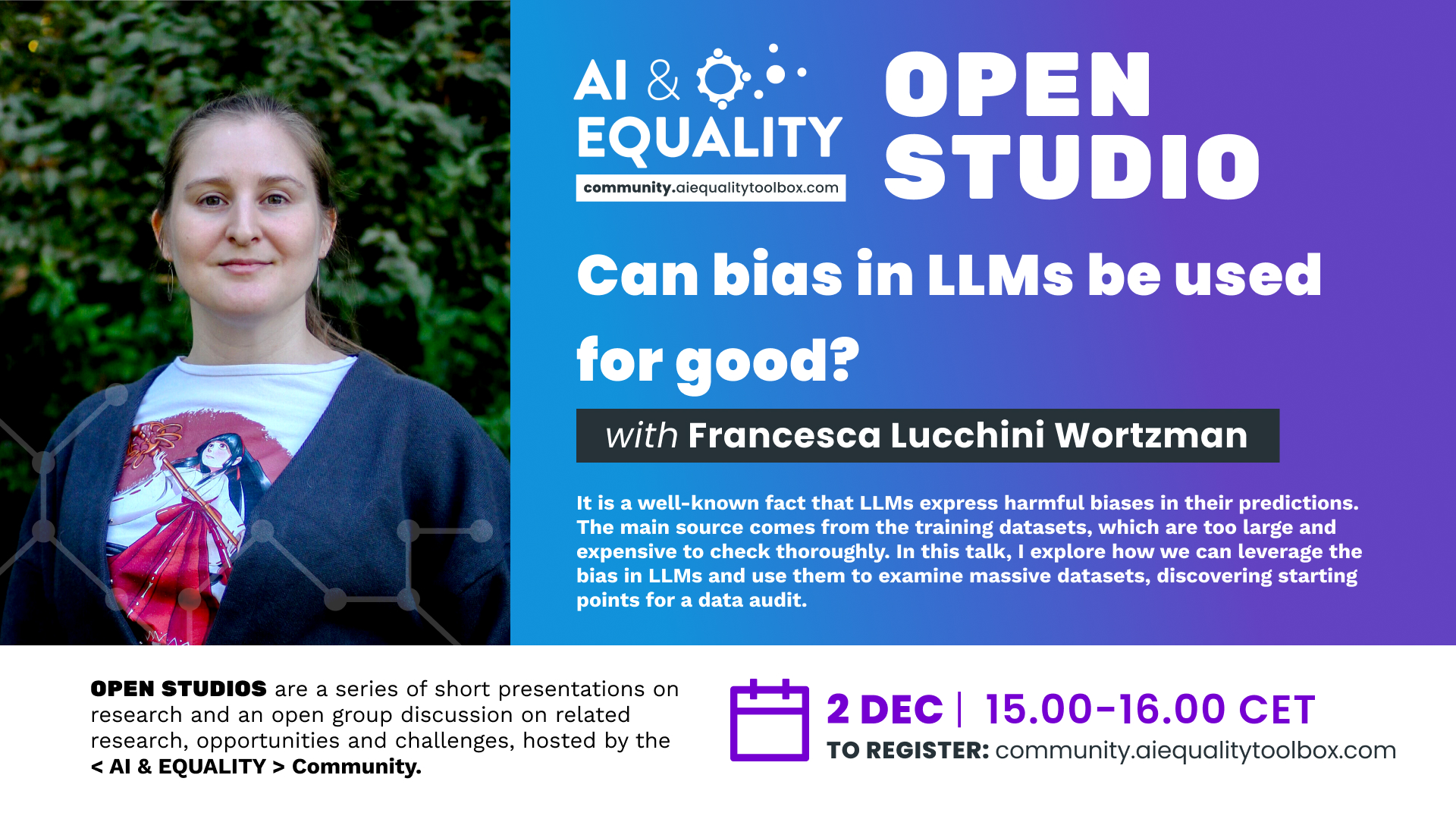
It is a well-known fact that LLMs express harmful biases in their predictions. The main source comes from the training datasets, which are too large and expensive to check thoroughly. In this open studio, Francesca Lucchini will explore how we can leverage the bias in LLMs and use them to examine massive datasets, discovering starting points for a data audit.
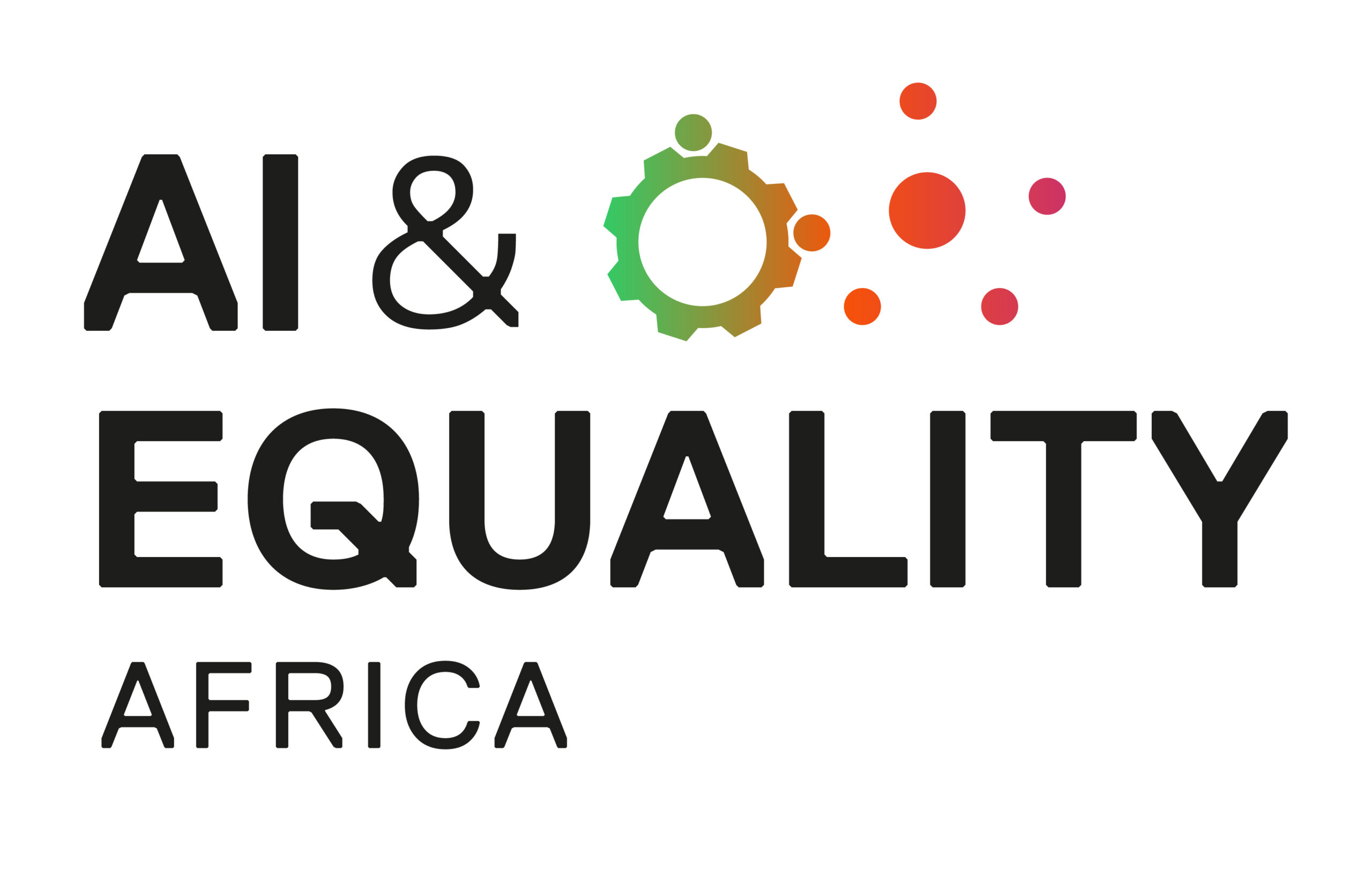
This launch webinar will present the methodology and the process of development of the toolbox featuring the contributors and introduce the webinar series that focus on each stage of the lifecycle with the selected case studies.

This webinar serves to explore Stage 1 of AI Development which is fundamentally a participatory and grounded approach which is crucial for centering gender equity, given that women often carry the brunt of labor in agriculture and caregiving, yet remain underrepresented in AI design and governance.

This webinar looks at how requirement setting should function as a bridge between vision and use: Aligning system features with cultural context, infrastructure gaps, and social expectations; Identifying constraints early on—connectivity, literacy, consent, power dynamics—and building around them and making conscious trade-offs between speed, scale, and equity.